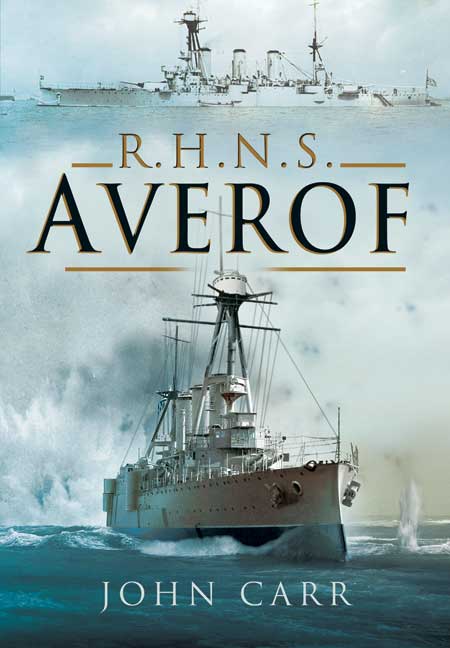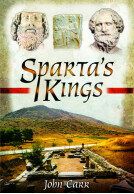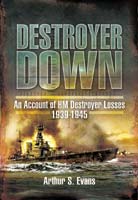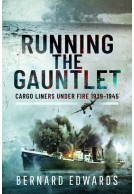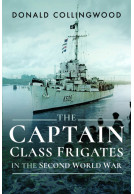RHNS Averof (Hardback)
(click here for international delivery rates)
Order within the next 2 hours, 16 minutes to get your order processed the next working day!
Need a currency converter? Check XE.com for live rates
| Other formats available - Buy the Hardback and get the eBook for free! | Price |
|---|---|
| RHNS Averof ePub (17.8 MB) Add to Basket | £6.99 |
Built at Livorno in 1910, the 10,000-ton RHNS Averof had the distinction of being the flagship, and by far the biggest warship, of the Royal Hellenic Navy until 1951. More than a century after its construction, she is still afloat, one of just three armoured cruisers still in existence in the world. Originally intended for the Italian navy, the ship was bought by Greece and soon saw her first action in the Balkan Wars. In the Battle of Cape Helles (3 Dec 1912) Averof inflicted heavy casualties on the Turkish fleet, following it up with a victory in the Battle of Lemnos (5 Jan 1913).
In the 1920s the ship underwent a major refit in France, which included modernizing her armament by replacing her obsolete torpedo tubes with more anti-aircraft guns. When the Germans overran Greece in World War Two, Averof made a dramatic escape to Alexandria, dodging attacks by the Luftwaffe, despite Admiralty orders that she be scuttled. In 1941 she escorted a convoy to India, being the first Greek vessel to enter Indian waters since the time of Alexander the Great, and continued to serve on escort duties throughout the war.
In 1945 Averof was laid up on the island of Poros and neglected until 1984 when the Greek Admiralty decided to resurrect the ship. After years of slow refitting and preservation, the ship is now moored at Phaleron on the coast of Athens as a floating naval museum. As well as giving full technical specifications and operational history, including details of her restoration, John Carr draws on first-hand accounts of the officers and men to relate the long and remarkable career of this fine ship.
This is an interesting book, as much for the insights into the woeful Greek politics of the period as for its more traditional naval aspects, although they do include decent accounts of the ship's main battles and some excellent photographs.
History of War Web
The author's light style and the remarkable nature of the story he is telling make for an enjoyable read.
Mariners's Mirror
As well as giving full technical specifications and operational history, including details of her restoration, John Carr draws on first-hand accounts of the officers and men to relate the long and remarkable career of this fine ship. All-in-all, I found this to be a most interesting and very enjoyable book about a little known subject which will be enjoyed by all naval enthusiasts.
Marine News
Launched in 1910 [RHNS Averof] was an Italian built armoured cruiser of just under 10,000 tons. The book takes us through the story of the ship right up to the present day. ... The detail of the stories surrounding the ship, of rebellion among the crew at different times as well as the descriptions of the actions she took part in, made for a really interesting read, as much for the link between the politics of Greece over the years and how it was intertwined with the history of the ship.
MIlitary Modelling
An impressive and valuable account.
Firetrench
RHNS Averof: Thunder in the Aegean is a well-written account of a ship and what she truly means to her country. There are forty-five centrally located pictures of the Averof within the book showing her birth, service and final placement as a museum. This book captures the grandeur of this vessel very well.
MSC Reviews
About John Carr
John Carr has enjoyed a career as a journalist, correspondent and broadcaster (The Times, Wall Street Journal Europe, Vatican Radio), mainly in the Mediterranean and particularly Greece, where he now resides. He is the author of On Spartan Wings: The Royal Hellenic Air Force in World War II; Sparta’s Kings; The Defence and Fall of Greece 1940-41; RHNS Averof; Fighting Emperors of Byzantium; The Knights Hospitaller; The Komnene Dynasty; and Mussolini’s Defeat at Hill 731; he is also the co-author of Philip, Prince of Greece (with Constantinos Lagos) and the translator of Who Really Won the Battle of Marathon? by Fotis Karyanos and Constantinos Lagos, all published by Pen & Sword.







